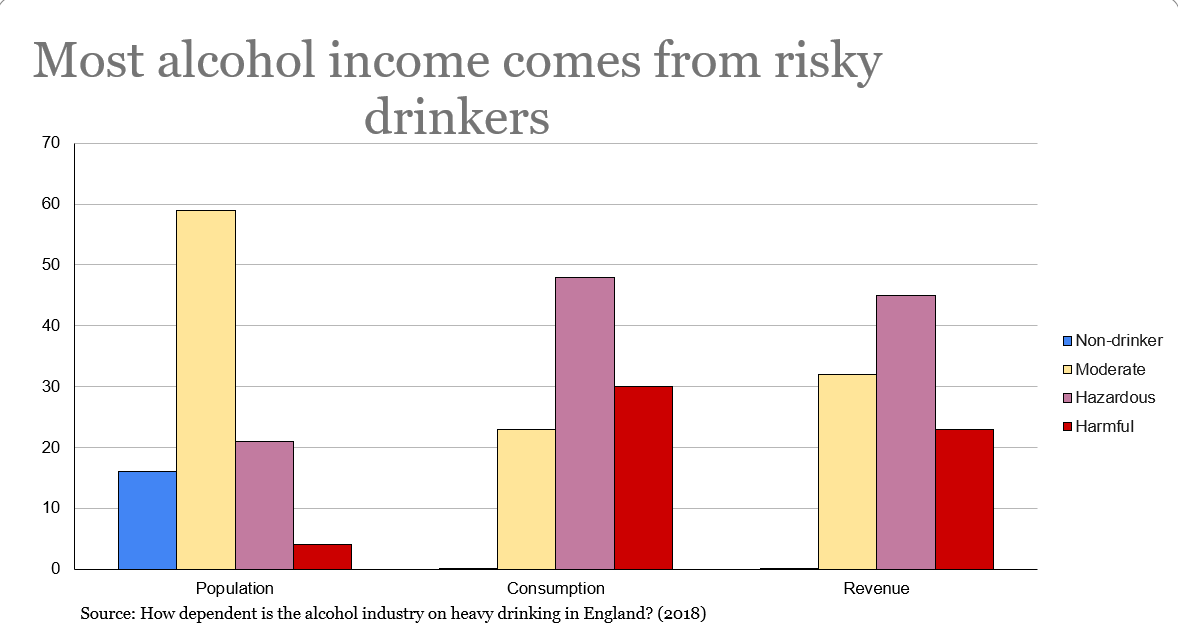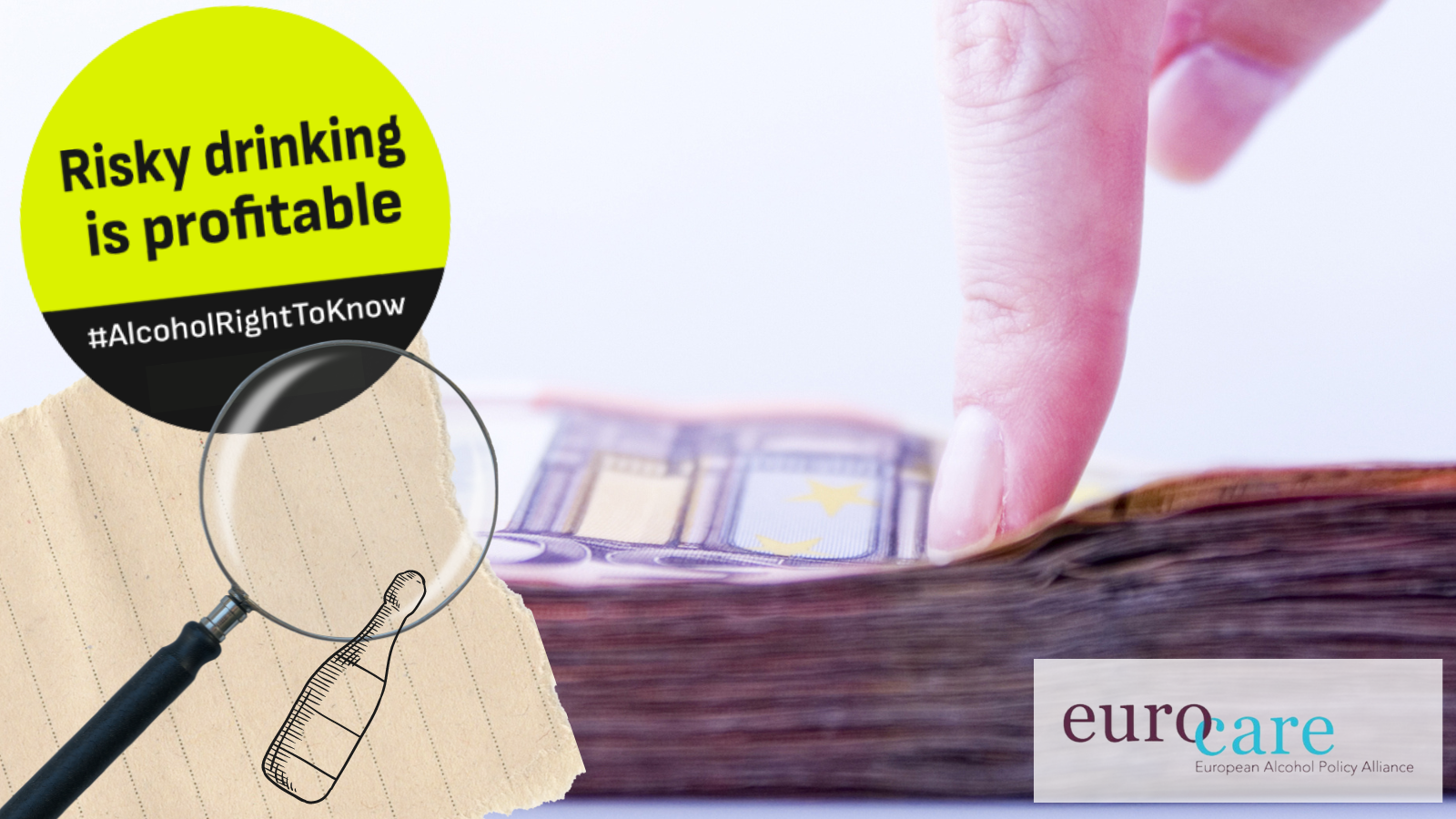The alcohol industry cannot curb harm
The alcohol industry and its satellite organisations cannot offer ways to reduce alcohol harm because the bulk of their income comes from riskier levels of drinking.
Internationally a study found that in higher-income countries heavier drinking occasions contribute around half of sales, while in middle-income countries it is closer to two-thirds. This fact is reflected by the strategy of transnational corporations.
The quarter of English adults drinking more than the UK’s low-risk guideline drink 78% of the alcohol and contributed 68% of sales (see chart). If this group cut back to low-risk levels alcohol sales would fall 38%, losing private shareholders £13bn (€14.6bn) a year.
Alcohol interests cannot curb riskier alcohol drinking because doing so would undermine their primary duty of maximising shareholder returns. This core purpose is better served by undermining effective alcohol policy, often by offering phoney solutions in the guise of assistance.
Alcohol industry organisations style themselves as collaborators in alcohol policy making but the real goal is to block effective policies. They try to block proven policies targeting marketing, availability and affordability, and the health literacy that would come from labelling.
Effective alcohol policy can only be made by following the advice of specialists dedicated to alcohol harm reduction, with no conflict of interest in doing so. Only they can offer well-founded policies which reduce the most alcohol harm at the least cost to the public.

Sources
Casswell S, Callinan S, Chaiyasong S, Cuong PV, Kazantseva E, Bayandorj T, Huckle T, Parker K, Railton R, Wall M. How the alcohol industry relies on harmful use of alcohol and works to protect its profits. Drug Alcohol Rev. 2016 Nov;35(6):661-664. doi: 10.1111/dar.12460. Epub 2016 Oct 27. PMID: 27785844.https://onlinelibrary.wiley.com/doi/abs/10.1111/dar.12460
Bhattacharya A, Angus C, Pryce R, Holmes J, Brennan A, Meier PS. How dependent is the alcohol industry on heavy drinking in England? Addiction. 2018 Dec;113(12):2225-2232. doi: 10.1111/add.14386. Epub 2018 Aug 22. PMID: 30136436.https://pubmed.ncbi.nlm.nih.gov/30136436/

